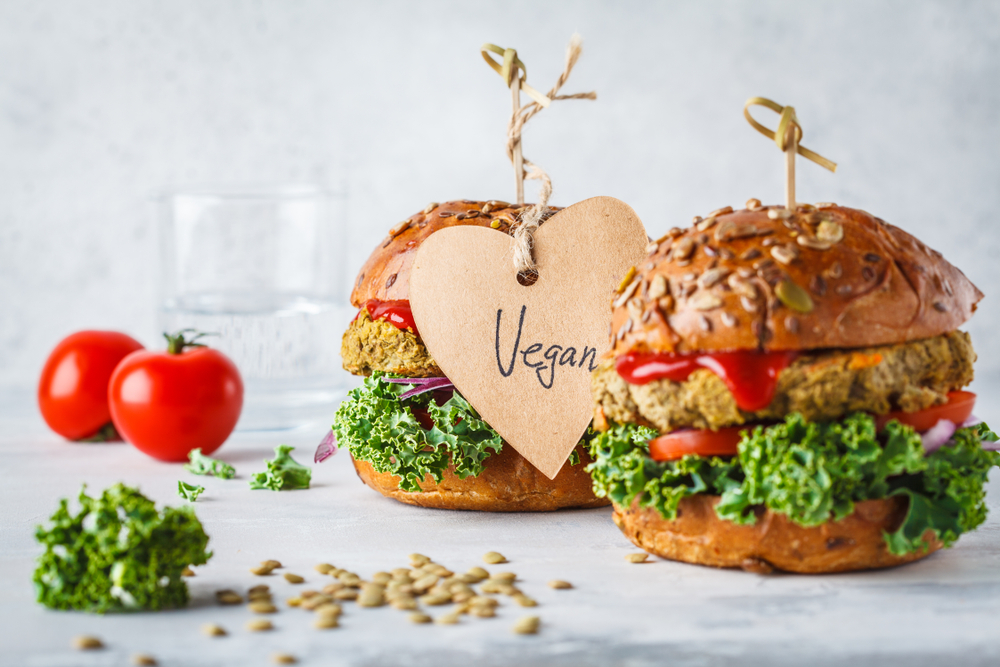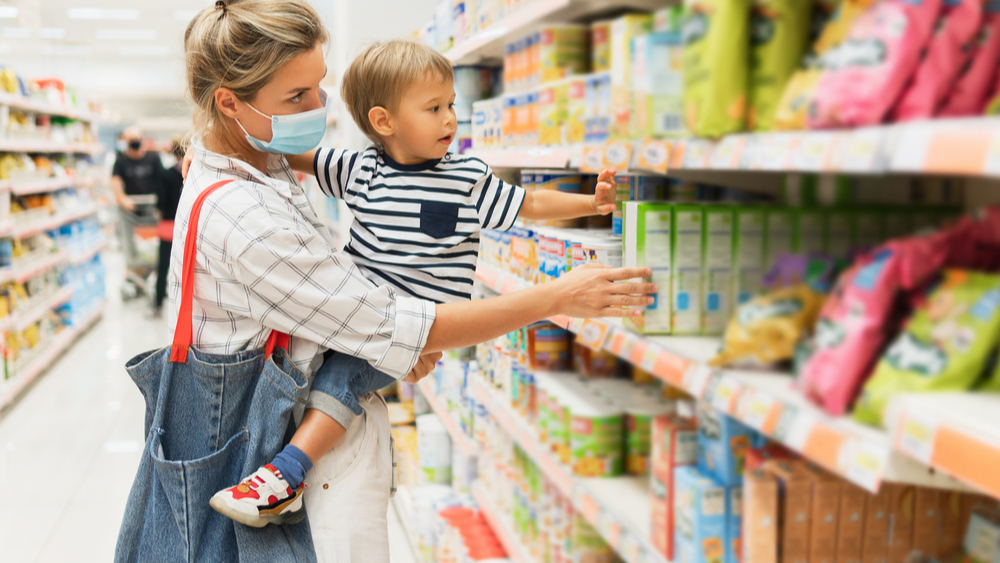The current food trends and how they might affect your demand
Market demand and customer requirements constantly evolve with changing behaviours and influences.
The coronavirus pandemic has been the most significant influence on customer behaviours in recent years. It has seen attitudes and priorities shift – especially regarding how we buy and eat food.

It’s crucial to be aware of the emerging food trends as they will directly affect your production requirements and the standards you uphold.
By staying on top of how people are buying food, you are better able to navigate the market and adjust your operations to meet new needs. This will enable you to maintain revenue, despite external factors.
We list the most popular current food trends and the potential impact on your plant below.
- Sustainability
- Hygiene
- Better quality ingredients
- Meat and dairy alternatives
- ‘Functional’ foods
- Increased demand in retail
- Exotic flavours
Sustainability
Making ethical and sustainable purchases has become a priority for consumers. A study by Deloitte in 2020 found that 43% of people said they actively chose brands with environmentally friendly values and practices. The number is likely to have grown in the last two years as climate change concerns increases.
To win over customers, you must show yourself as a partner to the environment. This means incorporating sustainable processes.
Examples of eco-friendly measures you might take include:
- Sourcing raw materials from ethical origins
- Using local resources to minimise transportation
- Using renewable energy sources
- Adequately handling waste – and recycling where possible
- Lowering energy use (such as using machines with reduced power consumption)
- Effective stock management to prevent waste
- Having efficient processes that minimise giveaway while only using the resources required
If the environment isn’t already a priority in your plant, it’s crucial to act now before you start alienating customers as the trend looks set to continue. It will also ease the growing pressure from industry leaders and government bodies for businesses to commit to net-zero objectives.
Hygiene and safety
Hygiene has always been a critical part of food production. Manufacturers must meet set industry standards, and cleanliness is central to this.
However, hygiene has taken a more significant role since the pandemic. People understand better than ever how easily disease can spread, meaning they want well-handled food that minimises the risk of illness.
2022 has also seen Kinder dealing with salmonella contamination across their products, an issue well covered by the media. There was also significant customer backlash, with people wanting to know that their food is safe to consume.

Your plant needs stringent hygiene measures to maintain a favourable reputation and win over sales. Start by ensuring your staff are trained in good hygiene, including regular handwashing, wearing PPE where required and handling products correctly. You should also have a strict cleaning regime in your factory.
It’s crucial to have hygiene equipment that is compatible with your materials and easy to clean.
Product inspection is also key to minimise hazards. An effective product inspection system should reviews your products for issues, including contamination from various sources and broken seals. X-ray is typically the most comprehensive option, though checkweighing and metal detection are alternatives that may suit your requirements.
Better quality ingredients
Another emerging trend post-pandemic was increased concern about the quality of food in the UK. In line with people’s focus on ethical and sustainable purchases and a drive to protect personal health through nutrition, people want high-quality food using good ingredients.
The onus is on manufacturers to source better materials while being transparent about their origins. Working with reliable partners who provide high-quality supplies – taken from ethical or even organic locations – will ensure a quality outcome.
You need to handle your materials carefully to meet customer expectations. With improved presentation and taste, they are less likely to doubt the origins and production of their food, which will allow you to build a favourable reputation. This includes quality control to avoid any damage or contamination to your products that could lead to dissatisfaction or even danger (such as allergens).
Finally, ensuring your labelling is correct and represents what is included in your products is of paramount importance. This will give customers confidence that their food has no hidden nasties and build trust with your brand.
Meat and dairy alternatives
The number of vegetarians and vegans in the UK has increased, with 14% of adults following a meat-free diet. Flexitarianism is also on the rise, with even meat-eaters introducing more plant-based nutrition into their diet.
With demand growing for meat and dairy alternatives, we can expect food product lines to represent this.

You must have compatible equipment and production conditions if you are asked to work on vegan and vegetarian projects. The most critical point will be ensuring you handle such products separately away from any meat or dairy projects in your plant to minimise the risk of cross-contamination.
By demonstrating your ability to work with plant-based lines, you’re likely to win over further sales as the trend continues to grow.
‘Functional’ foods
The pandemic has made many people more aware of their health and keener to improve it. As such, there has been a rise in the sales of so-called ‘functional’ foods – food that actively promises to improve your health, such as probiotic yoghurts, vitamin-enriched foods or protein-high products.
Once more, you may see the product lines running through your production shift representing this trend. As with any project, you must ensure adequate processes and systems to deliver high-quality output.
When working with ‘speciality’ products, you may need to meet niche requirements to meet specifications, such as working with particular ingredients. Ensure you know the requirements and create processes that consistently fulfil them.
Increased demand in retail
We will always need food – that’s something that won’t ever change. However, what has evolved is where we purchase our food.
In the lockdown, where the hospitality sector was largely shut, more of us had to resort to home cooking. Supermarkets experienced increased demand as a result, with more people seeking ingredients to make dishes at home. Restaurants also had to shift to takeaway and collection.
Despite no lockdown measures, this pattern has not completely reverted to pre-pandemic levels. The ongoing cost of living crisis will affect this further, with people choosing cheaper meals at home over dining out.
There are two impacts. Firstly, if you previously worked with businesses in the hospitality sector, you may find demand has not recovered. If you are targeting new customers, you may decide to focus on efforts on the retail landscape instead.
Secondly, if you already work with retailers, such as supermarkets, you may still be experiencing increased demand. This is a challenge, with supply chain disruption and skills shortages causing havoc across the manufacturing industry.

You need to find ways to continue to meet demand despite the obstacles. One of the most significant adaptions plants can make at this time is introducing automation which eases the labour requirement while enabling you to generate high output levels.
If you choose to utilise automation, aim to find reliable machinery compatible with your materials that fulfils the functions you need. This will enable you to deliver quality while hitting your output targets.
Exotic flavours
Finally, after years of limited travel opportunities, it seems many of us are bringing the rest of the world into our homes through food. Exotic flavours have been predicted to be a consumer favourite in retail this year.
You may find such flavours appearing in your production lines. The most significant challenge here will be accessing suitable raw materials, primarily if you use imported ingredients.
With supply chain disruption still an issue, you may find yourself unable to secure raw materials or experiencing delays. You must negotiate strong relationships with your suppliers to ensure you have the necessary resources and are informed of any issues ahead of time. This will enable you to manage productivity effectively and continue to address demand.
If you’re working with new ingredients, it’s also vital that your production line is equipped to handle them without compromising taste or quality.
Conclusion
How we buy and consume food now is drastically different from a decade ago. Customer preferences will continue to adapt, and new trends will emerge.
To make the most of demand, a successful plant must be flexible and agile. Part of this is staying abreast of the trends in the industry and ensuring you are well equipped to incorporate them into your production.
Whether improving quality and hygiene or working with plant-based or exotic-flavoured foods, adapting your plant in the right way will enable you to generate sales in the ever-changing context for long-term results.
If you want to optimise your existing production lines or introduce new projects into your plant, Yamato will help.
We offer individual systems and whole-line solutions to fulfil your goals. We work with you to find the most compatible machinery for your products to fuel enhanced performance.
Get in touch today to speak to one of our expert team members about your requirements.

